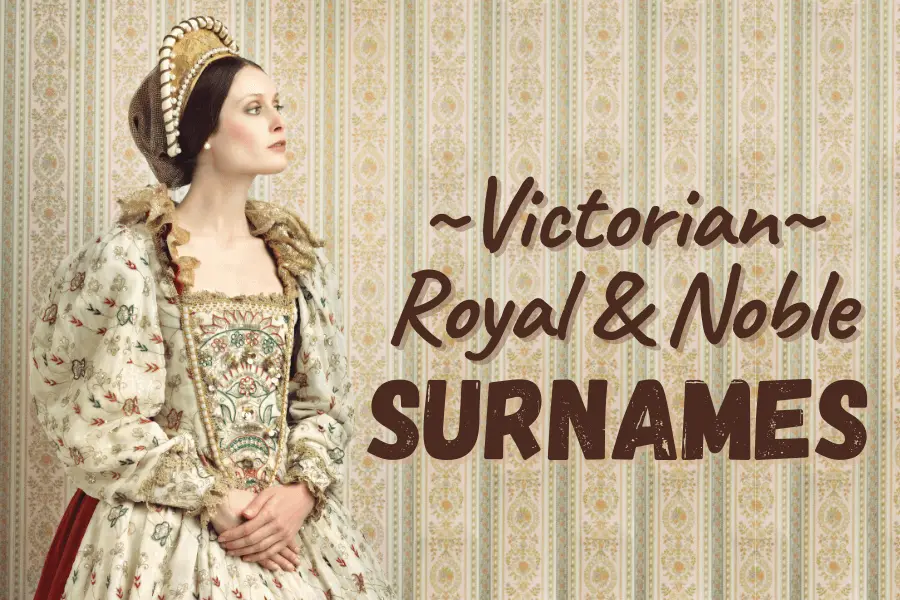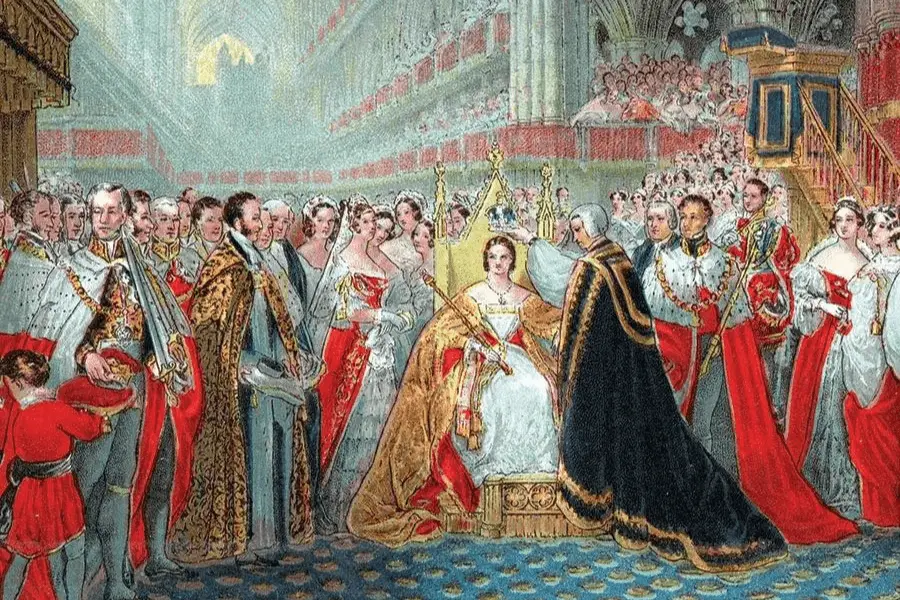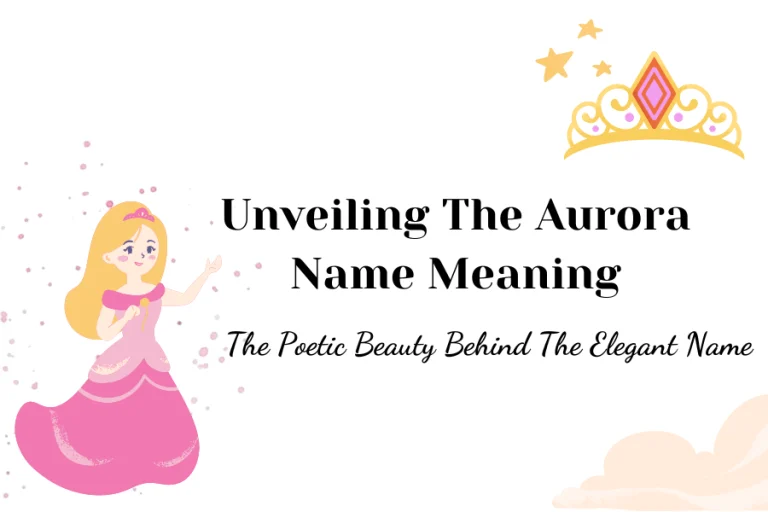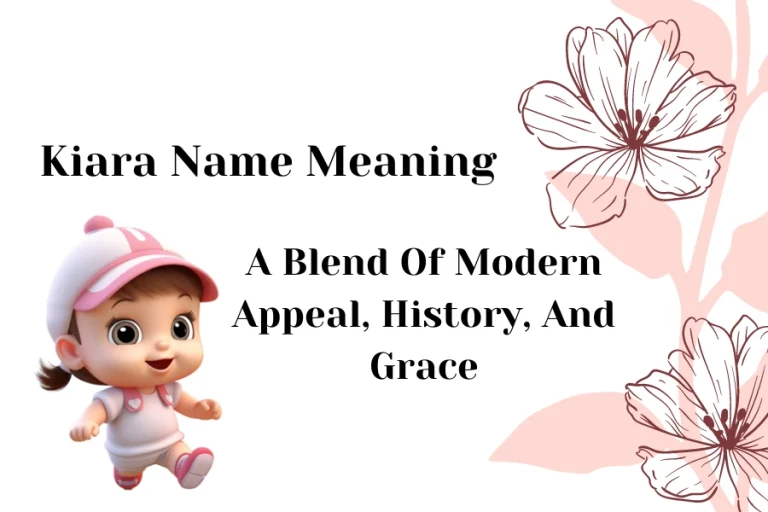
Queen Victoria ruled England and Ireland from 1837 until 1901 over the half of the 19th century. Many Victorian royal and noble surnames from the 1800s are renowned and prosperous among the common folk. This article will show you some royal and noble surnames that were strong under Queen Victoria’s reign and still remain until now.
Royal Victorian Surnames
Royal Victorian surnames are those related to the British Royal families, either by familial association. Beside Victorian names, probably the royal last names that this article is about to mention have a few last names that you will feel familiar with or know clearly about that clan. But here, this article will provide and tell you the origins and meanings behind the surnames.
- Albert
Origin: German (derived from the name Adalbert)
Meaning: ‘bright nobility’
Description: The last name became popular under the Victorian reign for its connection with Prince Albert of Saxe-Coburg and Gotha who was the husband of Queen Victoria.
- Cecil
Origin: Welsh and Latin
Meaning: ‘sixth’ or ‘blind
Description: Cecil belongs to the aristocratic Cecil family, including notable members such as Lord William Cecil, the prime minister of Queen Elizabeth I.
- Cromwell
Origin: habitational surname from Nottinghamshire
Meaning: ‘crooked stream’
Description: Cromwell holds historical significance in England that era as it was associated with Oliver Cromwell, who was the first Lord Protector of the Commonwealth of England, Scotland, and Ireland.
- Ferdinand
Origin: German
Meaning: ‘to travel with courage’
Description: Although not part of the British monarchy, it has aristocratic significance, being used by numerous Spanish, Portuguese, German, Austrian, and Italian kings.
- Fitzwilliam
Origin: distinctive patronymic surname derived from William
Meaning: ‘son of William’
Description: FitzWilliam was used as a surname in noble circles such as some notable figures were Thomas FitzWilliam, the first Viscount FitzWilliam, and William Fitzwilliam, the fourth Earl Fitzwilliam.
- Howard
Origin: Old French and German
Meaning: ‘heart-brave’ or ‘chief protector’
Description: Howard is associated with the noble Howard family, notably John Howard, the Duke of Norfolk in the 15th century.
- Montagu
Origin: English, equivalent of the French surname Montague
Meaning: ‘pointed hill’
Description: Montagu is linked to the House of Montagu, an English aristocratic family that rose to prominence in the 14th and 15th centuries as the Earls of Salisbury.
- Montgomery
Origin: Norman
Meaning: Derived from Sainte-Foy-de-Montgommery and Saint-Germain-de-Montgommery in Normandy
Description: The Montgomery family has been influential in both French and British nobility.
- Mountbatten
Origin: English
Meaning: A form of the German habitational surname Battenberg from Hesse, Germany
Description: The last name is used by the descendants of the Mountbatten family such as the Marquesses of Milford Haven and the Earls Mountbatten of Burma.
- Osborne
Origin: Norse
Meaning: ‘divine bear’
Description: While it is not directly connected to British royalty, Osborne House on the Isle of Wight served as the residence of Queen Victoria and Prince Albert.
- Plantagenet
Origin: English (adapted by Richard, the third Duke of York)
Meaning: ‘common broom’ – a bright yellow flowering plant
Description: The Plantagenet family ruled England from 1154 to 1485 and produced 14 kings.
- Russell
Origin: Irish, Scottish, and English
Meaning: ‘red’ or ‘reddish’
Description: Russell is often used as a nickname for someone with red hair or a ruddy complexion. The Russell family is an aristocratic clan holding the title of Duke of Bedford since the 17th century in England.
- Somerset
Origin: Old English Sumorsǣte
Meaning: ‘the people living at or dependent on Somerton’
Description: Somerset is also a habitational surname from Somerset County, England, and part of the title Duke of Somerset, used by Charles Somerset, the first Earl of Worcester.
- St. John
Origin: England with the Norman Conquest
Meaning: Derived from Saint John the Baptist and the habitational surname from Saint Jean le Thomas in France
Description: Some examples about St. John: Baron St John of Bletso is a title in the Peerage of England, with Sir John St John being made a Baron in 1611.
- Stanley
Origin: English
Meaning: ‘stone meadow’ or ‘a stone-filled meadow’
Description: Stanley is a toponymic surname. The Earls of Derby and the Barons of Audley are examples of the Stanley family. The use of Stanley as a personal name makes political followers of the Stanley family uncomfortable.
- Tudor
Origin: Welsh and English
Meaning: ‘people king’ or ‘king of the people’
Description: The House of Tudor was a royal family that ruled England over a hundred years from 1485 to 1603, with five monarchs Henry VII, Henry VIII, Edward VI, Mary I, and Elizabeth I respectively.
- Windsor
Origin: English
Meaning: ‘windy hill’ or ‘windy riverbank’
Description: Windsor is a habitational name from several places named Windsor in England. It is the surname used by the House of Windsor, which has held the British throne since 1917.
- York
Origin: British
Meaning: ‘boar settlement’ or ‘yew settlement.’ Description: York is a toponymic surname. The House of York, a branch of the House of Plantagenet, provided England with three kings in the 15th century.
Related: Unique Baby Names That Mean Protector, Guardian or Defender
Noble Victorian Surnames

The middle class comprised the noble titleholders and landed gentry. In the Victorian era, this class became prominent and significant. Below is a list of noble Victorian surnames you may know.
- Byron
Origin: Old English
Meaning: ‘at the byres’ or ‘a place by the cowsheds.’
Description: Byron is a toponym surname as well as an occupational name for those who work with cattle. But its meaning as a noble surname is linked to Lord Byron who was the famous English poet of the Romantic period and the 6th Baron Byron.
- Cavendish
Origin: Old English
Meaning: ‘caf’ meaning ‘bold’ and ‘edisc’ meaning ‘enclosed pasture’
Description: This habitational surname Cavendish is derived from a place name in Suffolk. The Cavendish family, dating back to the 14th century, is notable for holding titles such as the Duke of Devonshire and the Duke of Newcastle.
- Clive
Origin: English
Meaning: ‘cliff’
Description: This surname Clive is a topographic surname that refers to those living near a steep hill or riverbank. It is also associated with nobility, particularly Robert Clive, the 1st Baron Clive, who was a governor in colonial India.
- Compton
Origin: Old English
Meaning: ‘cumb,’ means ‘short or straight valley’; and ‘ton,’ means ‘enclosure’ or ‘settlement’
Description: Another habitational surname Compton is linked to the aristocratic Compton family, led by the Marquess of Northampton.
- Cornwallis
Origin: English
Meaning: habitational surname from Cornwall, England
Description: Cornwallis is also the name of the reputative Cornwallis family, an English aristocratic lineage headed by the Baron Cornwallis.
- Devonshire
Origin: English and Welsh
Meaning: habitational origins in the county of Devon
Description: Devonshire has habitational origins in the county of Devon. It is also a branch of title held by the Cavendish family, known as the Duke of Devonshire.
- Duncan
Origin: s Scottish Gaelic
Meaning: ‘donn,’ meaning ‘brown’ or ‘black,’ with ‘chadh,’ meaning ‘chief’ or ‘noble.’
- Edgar
Origin: English
Meaning: ‘rich spear’
Description: Edgar is both a surname and a masculine given name. Edgar was the name of two Anglo-Saxon kings and became renowned in the Victorian period due to a character in Sir Walter Scott’s novel, The Bride of Lammermoor.
- Elmore
Origin: English
Meaning: ‘famous noble’ or ‘elm ridge’
Description: Elmore is a habitational last name and another one of those last names with nobility built into its meaning.
- Emerson
Origin: English
Meaning: ‘son of Emery’ or ‘son of Emar.’
Description: Emerson is a classic English patronym surname with a meaning suggesting a lineage of bravery and power. It is not connected to a noble family, but its root name Emery translates to ‘a powerful ruler.’
- FitzRoy
Origin: English
Meaning: ‘son of the king’
Description: Fitzroy is a surname with strong bonds to nobility. It is the name of the aristocratic FitzRoy family, which was headed by the Duke of Grafton.
- Franklin
Origin: medieval and Anglo-Norman
Meaning: ‘free landowner’
Description: Franklin is an English last name and masculine given name. Though it is not directly connected to British aristocracy or the royal class, it carries an aura of prosperity.
- Godwin
Origin: Anglo-Saxon
Meaning: ‘friend of God’
Description: An ancient surname Godwin was used in England dates back to before the Norman conquest, and it was linked with the House of Godwin, a prominent aristocratic family of the 11th century.
- Greville
Origin: British
Meaning: from a village in the Manche department of Normandy
Description: This British habitational surname is also associated with the prominent Greville family, a 16th-century aristocratic landowning family from Warwickshire, headed by the Earl of Warwick.
- Hamilton
Origin: typically British
Meaning: ‘flat-topped hill’
Description: With typically British surname, Hamilton has topographic origins and its links to aristocracy, the Duke of Hamilton is a title of peerage in Scotland, which was created in 1643.
- Harcourt
Origin: Old French and Old Norse
Meaning: ‘fortified farm’ or ‘farmyard’
Description: Harcourt is an English surname and has a connection to the House of Harcourt, a Norman aristocratic family with branches in France and England.
- Hardin
Origin: Old English and Old French
Meaning: ‘brave,’ ‘strong,’ or ‘hardy’ in English and ‘strong and brave friend’ in French
Description: In spite of the fact that Hardin was not directly related to an aristocratic family, it highlights noble and powerful qualities.
- Howell
Origin: English surname derived from the Welsh word Hywel
Meaning: ‘prominent’ or ‘eminent’
Description: Howell is popular since the Middle Ages, it associates it with an air of nobility and prosperity.
- Kent
Origin: English and Irish
Meaning: A habitational surname from the county of Kent
Description: Kent is also connected to the Kingdom of Kent, a medieval kingdom that eventually became a part of South East England.
- Manners
Origin: Norman
Meaning: ‘to retain’ or ‘to abide’
Description: An English surname Manners is a habitational surname from Mesnières-en-Bray in Seine-Maritime. Also, It comes from the Latin term manere with meaning ‘to retain’ or ‘to abide.’ Its phonetic and etymological link with manners and etiquette also makes it a surname with noble and rich connotations.
- Norfolk
Origin: Old English
Meaning: North people’
Description: Norfolk is a habitational last name from Norfolk in East Anglia. In terms of nobility, the Duke of Norfolk is a title in the Peerage of England.
- Pembroke
Origin: Welsh
Meaning: end land’
Description: With English and Irish usage, Pembroke is a habitational last name from Pembroke in Southern Wales. It is a recognized noble surname with The Earl of Pembroke is a title in the Peerage of England and was created in the 12th century.
- Spencer
Origin: English
Meaning: ‘steward’ or ‘dispenser’
Description: Spencer is a classic English surname that has powerful bonds to nobility. The aristocratic Spencer family has held various titles, such as the earldoms of Sunderland and Spencer, the dukedom of Marlborough, and the Churchill barony. Sir Winston Churchill and Diana, Princess of Wales, were also members from this clan.
- Sutherland
Origin: Scottish
Meaning: ‘southern land’
Description: Sutherland is an English habitational surname from the county of Sutherland. In terms of noble lineage, Sutherland is a powerful Scottish clan and holds the title of Earl of Sutherland.
- Walton
Origin: English
Meaning: ‘walled town,’ ‘city of wood,’ or ‘city of streams,’
Description: Walton a last name that has English habitational and toponymic origins with a rich and powerful aura. This surname also carries with it a sense of protection and abundance.
- Wellesley
Origin: English
Meaning: ‘stream next to a woodland clearing’ or ‘woodland belonging to the town of Wells’
Description: Wellesley has topographical origins that is associated with the prestigious Wellesley family, for whom the title of Duke of Wellington was created in 1814.
- Williams
Origin: English
Meaning: ‘son of William’ or noble connotations of ‘desire to protect.’
Description: Williams is a popular patronymic surname. Exact 21 baronetcies have been created for people with the last name Williams, ranging from 1622 to 1955.
Final Thoughts
The surname is not only the identity, but it is also related to habitation, origin and family prosperity and fame, particularly royal and noble members. Therefore, after reading this article, we hope you know some royal and aristocratic last names that still remain until now.






